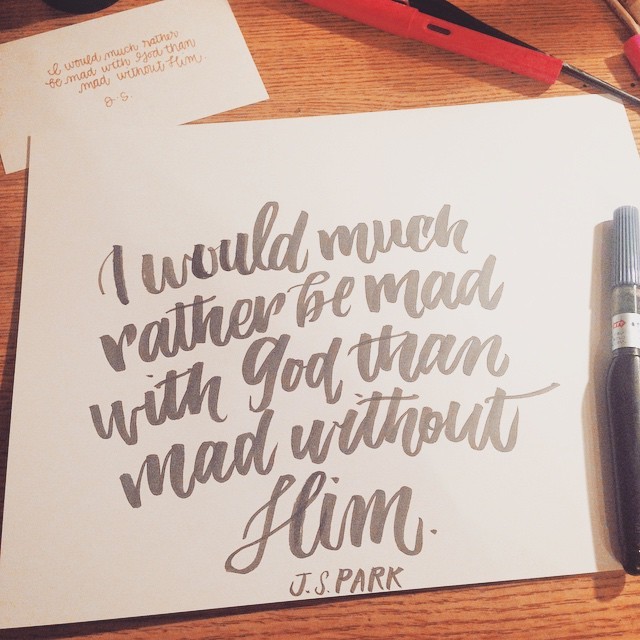The hard part is that when you decide not to call on lesser idols to numb your hurt and you finally reach out to God, suddenly you’re inside the pain. It’s all there. You can’t do anything to hide it anymore. It seems like a terrible idea.
One of the toughest things about excruciating pain is that it’s embarrassing. There’s a humiliating stench of astonishment that this is happening to me. It’s malheur, or a pain about your pain. If you live with it long enough, you’ll begin to identify yourself by your hurt, as if this is your only value. It’s understandable, because it takes up so much space in your mind. It’s no wonder why we’re tempted to run to everything else.
The pain is blinding. But — blinding ourselves to the pain is even worse. In doing so, we erase ourselves down to the bottom.
So then: Calling out to God is remembering who you are.
Remembering where you come from.
Remembering what you were made for.
Remembering that you are not your pain.
Most of all, remembering who He is.
This will look different for everyone. It could mean taking a long drive to the shoreline. It could mean standing over the sea in total silence. It could mean opening your Bible to Isaiah 40 or Psalm 23. It means asking a friend to hot chocolate and hearing you out. It means actively seeking encouragement and community, because 1 John 4:12 says, “No one has ever seen God; but if we love one another, God lives in us and his love is made complete in us.” It means journaling, or busting out your guitar, or crying for a long time, or having an intense conversation with yourself. It means finding a need and serving that need. It means finding an older brother or sister and asking for wisdom on what to do next. It means dressing your Sunday best and singing at church at the top of your lungs, in hot tears and laughter.
A lot of this might feel rote and mechanical. You might not feel like doing any of it, and I don’t mean to add another burden on your hurt.
I just know that for a moment, when I can trace the sunbeam back to the sun, I remember who I am. It doesn’t make me instantly whole. It doesn’t solve things today. It’s often just a brief glimpse. But when I return to the heart who made me, I momentarily find something stronger than my pain. It is stronger than everything else that calls my name.
This is a difficult thing to do. It’s not merely psychological re-arrangement, because it requires getting up. It requires tapping into a very fine frequency, which is there for a flash and gone. But it’s there.
You might have even been on the other side of this and helped someone else remember. Maybe you took someone to lunch and listened to them without interruption for an hour. You made actual eye-to-eye contact, and you never knew, but you changed the course of that person’s day from driving off a cliff. You randomly volunteered. You wrote a thank you note. You picked up a call from a distant friend. You wrestled with someone’s questions, maybe not even fully paying attention, but you stayed with it to the end.
You didn’t know, but you were part of the frequency.
Once in a while, God breaks in. He reminds us of beauty. The pain doesn’t stop, but there’s a joy in the middle of it, just loud enough to remember.
We can break in, too.
You can pray. You can sing. You can seek others. You can visit home in His Word.
It is painful, sloppy, and scary. It’s not easy to turn our internal axis to Him, especially in hard times. But by slow, stumbling degrees, I can breathe Him in — and He is the only air that fills these crumpled lungs.
I remember: we’re not home yet.
— J.S. Park | Mad About God
















